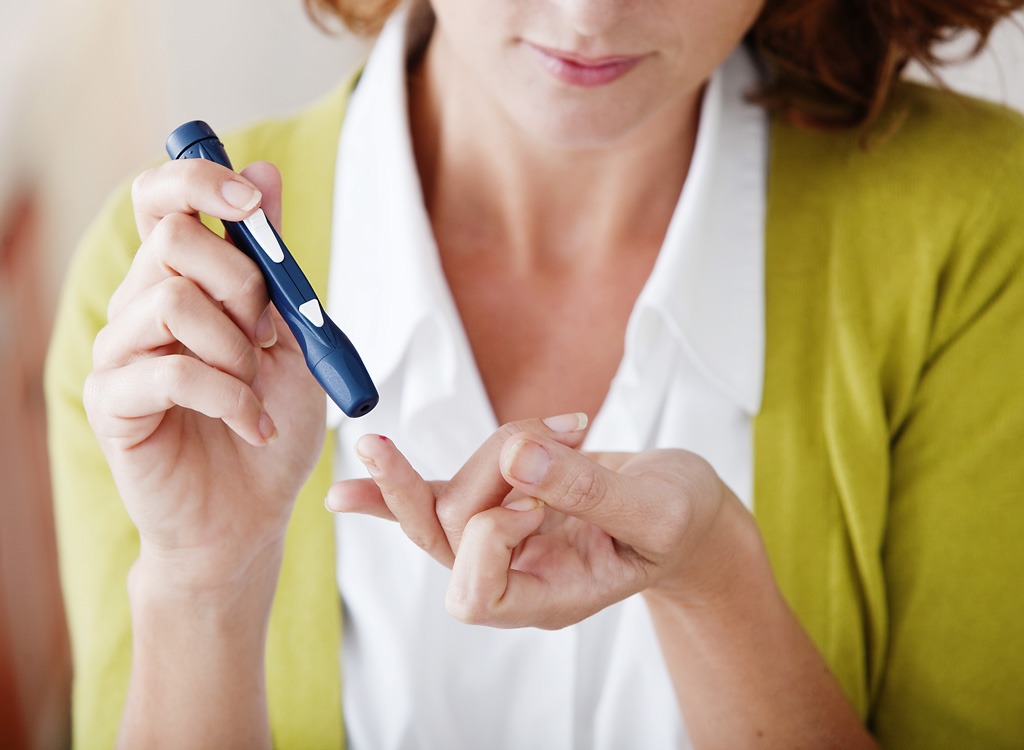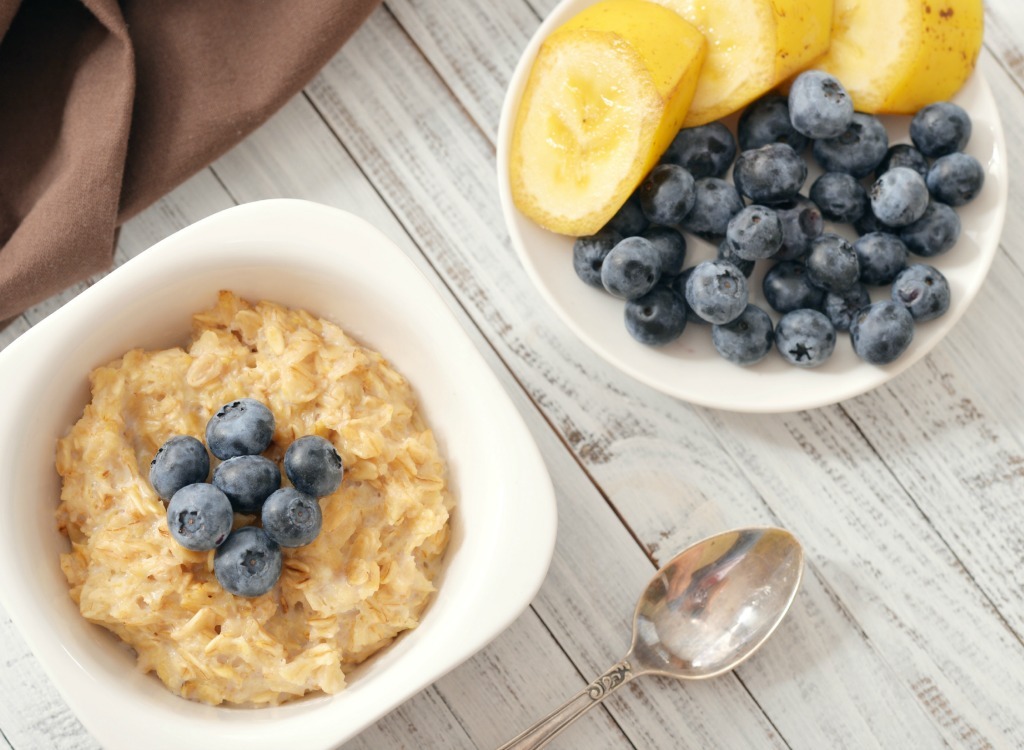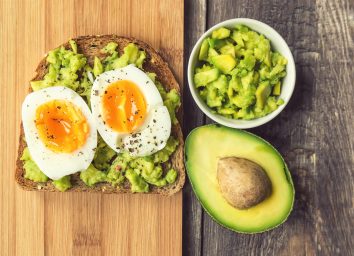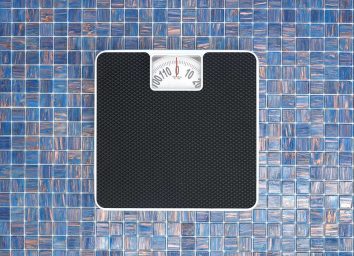15 Things A Dietitian Knows, But Your Doctor Doesn’t

When it comes to everything related to health, most people assume doctors are all-knowing and should be the main source of information. After all, they are the authority in helping us treat disease, manage chronic illness, and live longer, healthier lives.
In reality, doctors may have some blind spots when it comes to certain health matters, especially diet and nutrition. Although they can help patients make better choices, doctors aren’t as knowledgeable about the complexities of nutrition and how food affects our bodies—they may have only taken a couple classes about nutrition in med school, if they even concentrated on nutrition at all. And while doctors are skilled in treating disease, they don’t always have as much one-on-one time with patients to develop individualized meal plans, a major component of any treatment plan.
That’s where registered dietitians come in. To get certified, RDs spend at least four years in college studying nutrition, plus close to 1,000 hours during a supervised, hands-on internship, and must pass an exam. With this much knowledge and experience in nutrition and the complexities of food science, it’s no wonder RDs may be the better expert to help you assess and overhaul your diet.
Here are the biggest things dietitians specialize in, straight from RDs themselves. Still on the fence about making an appointment with a dietitian? Check out the 15 Signs You Should See a Nutritionist.
Individualized Nutrition

“Dietitians have to take courses in nutrition counseling and practice working with clients on a daily basis,” explains Natalie Rizzo, MS, RD. “Therefore, they are skilled in working with a patient to determine what type of eating pattern is right for them and their lifestyle, aka creating an individualized nutrition plan. Doctors tend to refer to dietitians for this type of practice.” Although doctors and dietitians often work together, it’s the dietitians who can focus on each patient’s specific nutritional needs.
Diets for Medical Conditions

“Many people don’t realize this, but certain medical conditions, such as diabetes, gastrointestinal disorders, heart disease, and cancer, require certain eating patterns,” explains Rizzo. “Dietitians are schooled in these eating patterns and can provide very detailed advice on foods that fit within these diets, which doctors cannot. For instance, if a diabetic wants to create a carb-counting meal plan, they would see a dietitian.”
Fad Diets

While doctors may not be up-to-date with the latest fad diet, a dietitian will be—but that doesn’t mean he or she will advocate for it. “I can say that for the most part, you will not find many dietitians who advocate for fad diets,” Rizzo says. “But we do know about them so that we can speak about them with patients. For example, we need to know the ins and outs of the newest diet trends so that can answer questions about them what patients ask.”
Specific Trendy Foods

“As a Dietitian, people ask me questions about new and trendy foods, like kombucha, acai, charcoal, etc.,” Rizzo says. “It’s the job of a dietitian to stay on top of these trends and be knowledgeable about these foods.”
Long-Term Accountability

With doctors’ busy schedules, they may not have time to sit down with patients for longer than a few minutes and can’t schedule as many follow-ups. However, this is part of a dietitian’s work.
“RDs often work with their patients for long periods of times, where as many doctors have limited time with their patients,” explains Jim White, RD, ACSM, owner of Jim White Fitness and Nutrition Studios. “Since eating healthy and losing weight is a long-term process, this gives the RD the advantage as they get to provide detailed dietary advice and coach their patients through their entire fitness journey.”
In-Depth Nutrition Knowledge

“Since most doctors only have a few nutrition classes in their education, they are limited on their nutrition knowledge,” White explains. “The entry-level registered dietitian has a four-year degree in nutrition, close to 1000 hours of internship experience, and they are required to sit in on a state licensure exam.”
Medical Nutrition Therapy

“Part of dietetics education includes food science: understanding foods themselves and chemical reactions related to them,” explains Nicole Anziani RD, CDE and Clinical Manager at Fit4D. “Nutrition is not traditionally covered in medical school. There may be one nutrition class in med school at best, or none. So registered dietitian-nutritionists are the experts in medical nutrition therapy; understanding food and nutrients’ effects on biochemistry is central to medical nutrition therapy.”
Patients’ Lifestyle and History

“In an outpatient setting, an RD or RDN will likely spend more time with a patient than a doctor and will interview the patient on their medical history and current status, but also their lifestyle history and practices,” Anziani explains. “The nutrition interventions and education provided will be tailored to the patient’s individual case—there is no identical prescription.”
Behavioral Change

If a patient really wants to make a lifelong change to their diet and eating habits, an RD is the person most skilled to help with that transition.
“RDs assess where a patient is in terms of their readiness to make changes, often using the behavioral stages of change model,” explains Anziani. Part of this model is assessing if a patient is in the pre-contemplative stage, where they don’t know if there is an issue; the contemplative stage, where they are thinking of making changes; the preparation stage, where they are ready to plan out the changes they’ll put into place to get to their goals; or at the action stage, where they are actively engaging in behaviors to reach their goals. After they’ve been in the action stage for six months or more, they are considered in the maintenance stage of chance, she says.
“Knowing a patient or client’s behavioral stage of change allows the RD to tailor interventions to better meet the patient where they are, and ideally create more realistic goals,” Anziani explains. “RDs use motivational interviewing techniques and targeted goal-setting processes to help facilitate this process.”
Food-Related Issues Beyond Nutrition

“Issues related to food go beyond nutrition,” explains Gina Hassick, RD, LDN, CDE. “There is often an underlying emotional, psychological, motivational or support system issue playing a role. Dietitians can act as a coach to help guide a person to make positive, realistic changes to help them meet their ultimate health goal. The process may take time but by setting small goals that build upon one another, sustainable lifestyle changes can be made.”
Moderation

“Dietitians know that it is not about avoiding certain food groups, but about moderation with an emphasis on healthier food choices from each food group,” Hassick says. “When it comes to protein, carbohydrates and fat, all three of those macronutrients (food groups) are essential and are a part of a healthy, well-balanced diet. There are healthy options in each food group so instead of focusing on what can’t be had, dietitians can help shift the focus to all the great options that can be had.”
Menu Planning

Dietitians are the point-person for patients looking to set up an effective, sustainable meal plan. “RDs help patients with menu planning and understanding how to prevent or manage a disease state through their diet,” explains Lauren Manganiello, RD, CDN. “Registered dietitians are the nutrition experts and are the best sources for food or nutrition advice.”
Managing Disease Through Diet

“Dietitians and doctors often work together to provide interdisciplinary care. Often a patient’s doctor refers them to an RD for dietary advice to help prevent or manage a disease state such as obesity, diabetes or cardiovascular disease,” Manganiello says. “RDs help patients with menu planning and understanding how to prevent or manage a disease state through their diet. RDs and physicians work together to provide the best continuum of care for clients and patients.”
Elimination Diets

“Sometimes food can cause inflammation in the body or symptoms that aren’t always diagnosed as obvious allergies, and a dietitian can recommend an elimination diet to help someone feel better by removing an ingredient that is causing a symptom,” explains Amy Shapiro, RD, and CDN of RealNutritionNYC. “Oftentimes doctors will prescribe medications for these symptoms that can cause further side effects. Dietitians look to food as medicine and will try to heal you from the inside out and prevent illness not fix illness.”
How Micro and Macronutrients are Used in the Body

“Macro and micronutrients are required and used by the body in many ways. Registered dietitians fully understand how fats, carbs, proteins, vitamins, and minerals are broken down in the body and used to provide energy and prevent diseases,” Shapiro says. “They can tell a client how best to lose, monitor, or gain weight based on past and current eating habits and the best way to reach goals they set together.”








